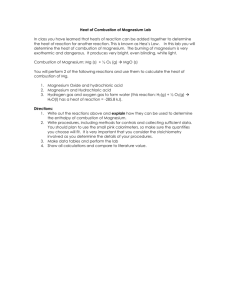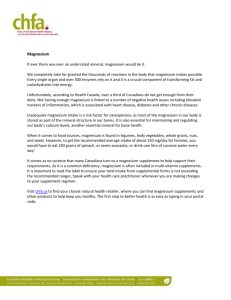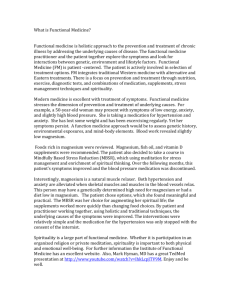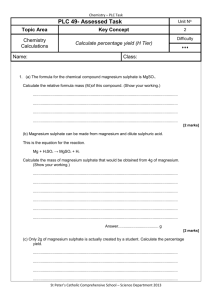Prescribing Tip No. 98 Date: 16th October 2015 Magnesium
advertisement
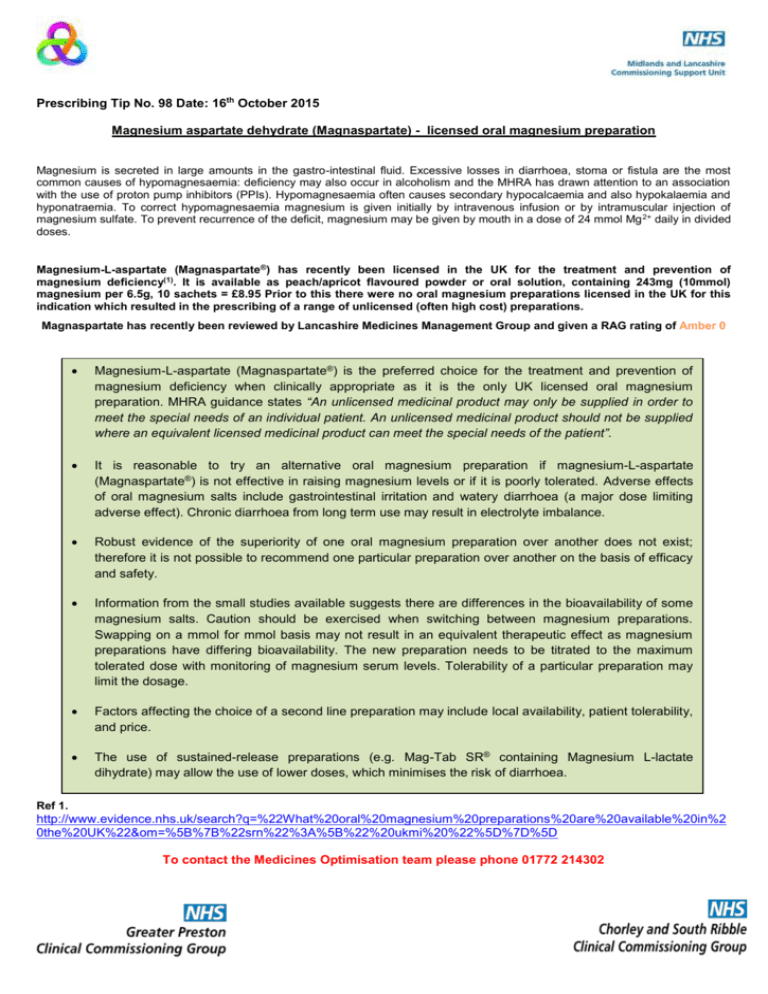
Prescribing Tip No. 98 Date: 16th October 2015 Magnesium aspartate dehydrate (Magnaspartate) - licensed oral magnesium preparation Magnesium is secreted in large amounts in the gastro-intestinal fluid. Excessive losses in diarrhoea, stoma or fistula are the most common causes of hypomagnesaemia: deficiency may also occur in alcoholism and the MHRA has drawn attention to an association with the use of proton pump inhibitors (PPIs). Hypomagnesaemia often causes secondary hypocalcaemia and also hypokalaemia and hyponatraemia. To correct hypomagnesaemia magnesium is given initially by intravenous infusion or by intramuscular injection of magnesium sulfate. To prevent recurrence of the deficit, magnesium may be given by mouth in a dose of 24 mmol Mg 2+ daily in divided doses. Magnesium-L-aspartate (Magnaspartate®) has recently been licensed in the UK for the treatment and prevention of magnesium deficiency(1). It is available as peach/apricot flavoured powder or oral solution, containing 243mg (10mmol) magnesium per 6.5g, 10 sachets = £8.95 Prior to this there were no oral magnesium preparations licensed in the UK for this indication which resulted in the prescribing of a range of unlicensed (often high cost) preparations. Magnaspartate has recently been reviewed by Lancashire Medicines Management Group and given a RAG rating of Amber 0 Magnesium-L-aspartate (Magnaspartate®) is the preferred choice for the treatment and prevention of magnesium deficiency when clinically appropriate as it is the only UK licensed oral magnesium preparation. MHRA guidance states “An unlicensed medicinal product may only be supplied in order to meet the special needs of an individual patient. An unlicensed medicinal product should not be supplied where an equivalent licensed medicinal product can meet the special needs of the patient”. It is reasonable to try an alternative oral magnesium preparation if magnesium-L-aspartate (Magnaspartate®) is not effective in raising magnesium levels or if it is poorly tolerated. Adverse effects of oral magnesium salts include gastrointestinal irritation and watery diarrhoea (a major dose limiting adverse effect). Chronic diarrhoea from long term use may result in electrolyte imbalance. Robust evidence of the superiority of one oral magnesium preparation over another does not exist; therefore it is not possible to recommend one particular preparation over another on the basis of efficacy and safety. Information from the small studies available suggests there are differences in the bioavailability of some magnesium salts. Caution should be exercised when switching between magnesium preparations. Swapping on a mmol for mmol basis may not result in an equivalent therapeutic effect as magnesium preparations have differing bioavailability. The new preparation needs to be titrated to the maximum tolerated dose with monitoring of magnesium serum levels. Tolerability of a particular preparation may limit the dosage. Factors affecting the choice of a second line preparation may include local availability, patient tolerability, and price. The use of sustained-release preparations (e.g. Mag-Tab SR® containing Magnesium L-lactate dihydrate) may allow the use of lower doses, which minimises the risk of diarrhoea. Ref 1. http://www.evidence.nhs.uk/search?q=%22What%20oral%20magnesium%20preparations%20are%20available%20in%2 0the%20UK%22&om=%5B%7B%22srn%22%3A%5B%22%20ukmi%20%22%5D%7D%5D To contact the Medicines Optimisation team please phone 01772 214302


